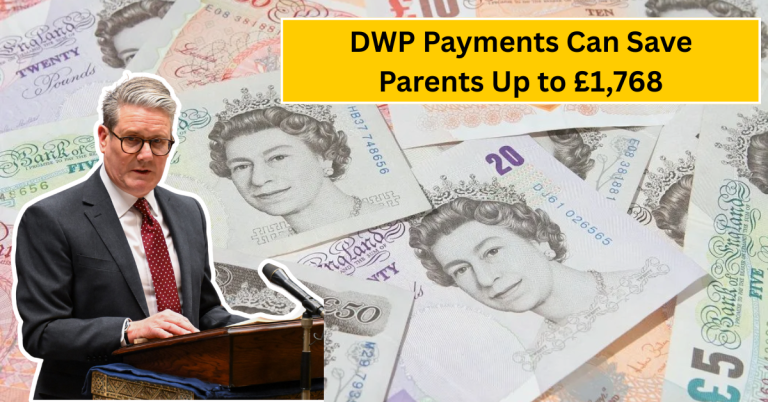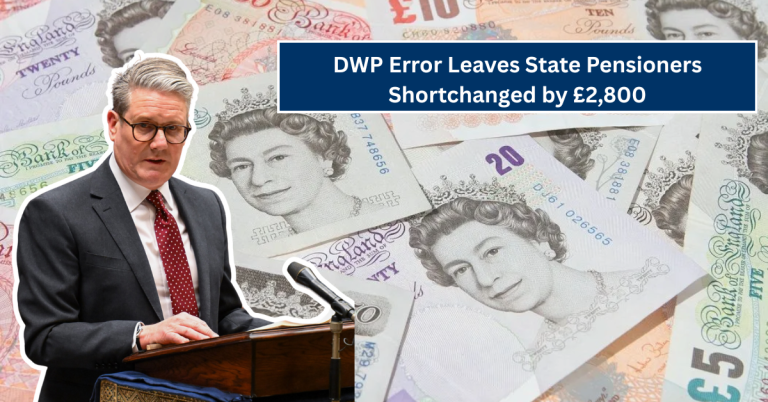
Planning a summer holiday abroad is exciting, but if you receive Personal Independence Payment (PIP) from the Department for Work and Pensions (DWP), it’s important to be careful. The DWP has strict rules about how long you can be outside the UK without affecting your benefits. Many people don’t realize that travelling abroad could lead to their PIP payments stopping.
In this article, we will explain exactly how overseas travel can impact your PIP payments. We will also share tips on what you should do before booking your trip and how to avoid losing your benefit. This information is useful for anyone who wants to enjoy a holiday without financial worries.
What Is Personal Independence Payment (PIP)?
Personal Independence Payment, or PIP, is a benefit given to people in the UK who have long-term health conditions or disabilities. It helps with the extra costs that come with these challenges. The money supports daily activities and mobility needs, making life easier for many individuals.
Receiving PIP can be crucial for managing health care, travel, and other expenses. However, the government wants to make sure the benefit is used properly. Therefore, there are rules about where and how you live while getting PIP payments.
How Does Travelling Abroad Affect Your PIP Payments?
The DWP allows you to travel abroad but only for short periods without affecting your PIP payments. If you stay outside the UK for too long, the payments may stop. This is because PIP is designed to help people living in the UK, and long absences can suggest you are not currently using the benefit as intended.
Generally, you can be outside the UK for up to 4 weeks (28 days) without your PIP payment being affected. If your trip lasts longer than this, you must tell the DWP. Failure to inform them could lead to your payments being stopped or even reclaimed.
Rules for Time Limits Outside the UK
The DWP’s main rule is that you cannot leave the UK for more than 4 weeks in a year without your PIP payments being paused. If you plan to be away for more than 4 weeks, the DWP can stop your payments entirely during your absence. This applies even if your conditions have not improved or changed.
There are some exceptions, like if you are in a hospital or care home outside the UK. But these cases are rare and usually well-defined. Always check your specific situation and keep communication open with the DWP.
What Happens If You Don’t Inform the DWP?
If you travel abroad for over 4 weeks without telling the DWP, your PIP payments may stop suddenly. The DWP can also ask for repayment of benefits paid during the time you were away, which can create financial stress and complications.
It is very important to inform the DWP as soon as you know your holiday will be longer than 4 weeks. This helps avoid any surprises and keeps your claim in good standing. Being honest and upfront is the best approach to protect your benefits.
How to Inform the DWP About Your Holiday Plans
Informing the DWP is simple and can be done by phone, online, or by writing a letter. You should provide details about where you will be, the dates of your travel, and why you will be abroad for a long time. This information helps the DWP decide if your PIP will continue during your holiday.
It’s a good idea to keep a copy of any communication with the DWP for your records. This can be useful in case of misunderstandings or disputes in the future. Always ask for confirmation that they have received your notice.
Can You Appeal If Your PIP is Stopped?
If the DWP stops your PIP payments because of your travel, you have the right to appeal the decision. Appeals can be made if you think the decision was wrong or if special reasons prevented you from notifying the DWP on time.
During an appeal, you can explain your situation and provide evidence to support your case. It is helpful to seek advice from a benefits advisor or a support organisation familiar with PIP rules. Acting quickly after the decision is important to protect your rights.
Tips to Avoid Losing Your PIP on Holiday
To keep your PIP payments safe while enjoying your summer break abroad, follow these simple tips. First, always check the time limits allowed for staying outside the UK. Make sure your holiday does not exceed 4 weeks unless you have informed the DWP.
Second, notify the DWP well before you travel. Third, keep all communication in writing or record phone calls if possible. Finally, consult a benefits expert if your situation is complicated or you plan longer or frequent trips abroad.
Conclusion: Enjoy Your Holiday Without Worrying About PIP
Summer holidays are a great way to relax and recharge, but careful planning is needed when you receive PIP. Understanding the rules about travel and PIP payments can save you from unexpected financial problems. By informing the DWP about your plans and following the guidelines, you can enjoy your trip peacefully.
Remember, your health and peace of mind come first. Keep the DWP informed, know your rights, and seek advice if needed. This simple approach will help you keep receiving your PIP benefits even when you travel abroad.






